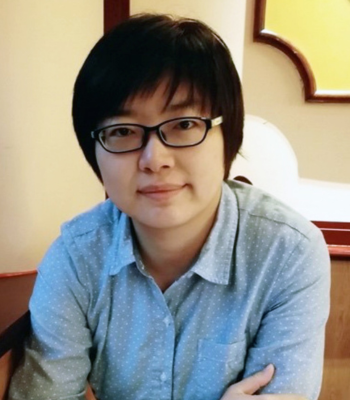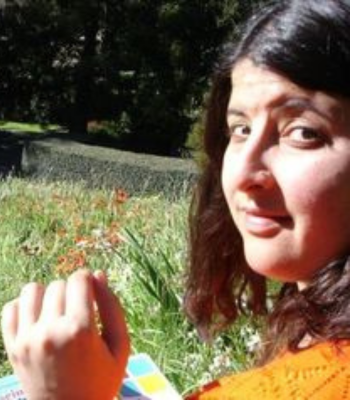FIMS News
Contact Information
FIMS Communications
Becky Blue
Email
519-661-2111x88493
FIMS & Nursing Building
Rm 2060C
New research and new perspectives: FIMS welcomes new faculty.
September 2023
FIMS is growing and strengthening its teaching and research capabilities with the arrival of a new, full-time faculty member in Library and Information Science, and the conversion of others into tenured and non-tenured, full-time positions. As an interdisciplinary Faculty with an array of programs and subject matters related to media, information and communication, FIMS focuses on the collaboration and cross-pollination of ideas that come from having a diverse group of teachers and scholars and looks forward to the opportunities that new faculty bring.
FIMS is excited to welcome Assistant Professor Shengnan Yang to the faculty in a tenure-track position focused on  Library and Information Science. Yang received her bachelor's and master's degree from Peking University in China and her PhD training in Information Science from Indiana University.
Library and Information Science. Yang received her bachelor's and master's degree from Peking University in China and her PhD training in Information Science from Indiana University.
Yang, who specializes in Information and Communication Technologies, is excited to begin her first academic appointment with FIMS. She brings a new perspective on information technology to FIMS that differs from the dominant discourse already in place.
“My research primarily focuses on the meso level, or middle level, study, which seems to be situated between individual analysis and the macro level point of view,” she says.
Yang explains that her work looks at the utilization of information and communications technologies not by individual organization, or corporation, or unit, but more broadly by industry, sector or field.
“I think this kind of research experience will help me to put the utilization of technology into context, by quantifying and measuring both the technology usage and the organizational and environmental setting in the study.”
Yang says she brings a theoretical angle to her work as she has adopted a socio-technical perspective to understand how people use technology and tease out the ways that technology and society play off each other as they develop.
“My intention is to introduce a holistic perspective to understand the interplay between technology and society on a larger scale.”
This fall term, Yang will teach a graduate course titled Managing Information Technology in Libraries. In the next few years, she hopes to develop and offer new courses based on social informatics, and basic skills for data mining, network analysis and text mining.
Assistant Professors Warren Steele and Tiara Sukhan are long-time Limited Duties instructors who have recently entered three-year, full-time contracts. Both are already popular instructors, and each will now have more opportunity to focus on additional research and other scholarly projects.  Since first teaching in FIMS in 2008, Professor Steele has been known for teaching courses focused on the history of communication, racism, and technology. His new Limited Term position gives Steele a new research component that will allow him to allocate more time to research, which in turn will help inform his teaching.
Since first teaching in FIMS in 2008, Professor Steele has been known for teaching courses focused on the history of communication, racism, and technology. His new Limited Term position gives Steele a new research component that will allow him to allocate more time to research, which in turn will help inform his teaching.
Steele’s current research project is a paper based on his experience teaching about racism in the Media, Information and Technoculture program, through courses like the third-year elective Race, Class and Social Power.
“It stems from my reflections on the last 10 or so years teaching about racism and antiracism. More specifically, it’s about how my pedagogy changed in that time, the roadblocks I ran into in my own thinking, and how my students approach the subject in my classes. The aim is to synthesize a decade of experience and communicate a teaching philosophy meant to develop and equip new comrades with the knowledge needed to defeat racism. Basically, I argue that pedagogical approaches to racism must be aggressively anti-essentialist and politicized in particular ways for the public good.”  Professor Sukhan started teaching at FIMS in 2013 and has since taught undergraduate courses related to television, radio, advertising, international media, and popular culture. This year she is also teaching a new (to her) course called Communication Through Memes.
Professor Sukhan started teaching at FIMS in 2013 and has since taught undergraduate courses related to television, radio, advertising, international media, and popular culture. This year she is also teaching a new (to her) course called Communication Through Memes.
Sukhan’s focus on topics that are particularly current and relevant to youth makes her classes popular amongst FIMS students.
“In addition to television studies, I’m interested in storytelling and mediated therapeutic narratives. I’m very focused right now on researching the current housing crisis in Ontario – exploring tenants’ rights and how they are communicated online,” she says.
Sukhan would like to develop a new course or two with working titles like, “God, Politics and Money,” “Going Home: Identity Space and Belonging,” and “This is the Way the World Ends: Zombies, Death Cults and AI.” She also hopes to indulge her love of communal TV viewing by hosting weekly screenings in FIMS.  Assistant Professor Basil Chiasson joined FIMS in July 2020 to help develop the new Creative Arts and Production (CAP) program. As of July 1, Chiasson’s role was converted to tenure track. Since joining FIMS, Chiasson has become an active member of the faculty. He is involved in a pilot project to offer writing support for new FIMS students and has taught popular courses in Media, Information and Technoculture and the Digital Communication Certificate program. For CAP, he co-teaches the first-year, core course Introduction to Creative Arts as well as an upper-year required course.
Assistant Professor Basil Chiasson joined FIMS in July 2020 to help develop the new Creative Arts and Production (CAP) program. As of July 1, Chiasson’s role was converted to tenure track. Since joining FIMS, Chiasson has become an active member of the faculty. He is involved in a pilot project to offer writing support for new FIMS students and has taught popular courses in Media, Information and Technoculture and the Digital Communication Certificate program. For CAP, he co-teaches the first-year, core course Introduction to Creative Arts as well as an upper-year required course.
Chiasson’s new status will allow him to better balance teaching and research. “I will be able to create a more productive balance between those two areas. This benefits both me and the students given how much my research has always informed my teaching,” he says. This rebalancing will also allow Chiasson to commit more time to participate in, and connect to, ongoing professional work in the arts. Those connections will be important as FIMS works to grow the CAP program. Over the next couple of years Chiasson hopes to revamp his special topics undergraduate course The Politics of Memory: Media, Affect Activism to become a graduate-level course. He also hopes to stimulate interest in collaboration between CAP students and FIMS PhD students.






